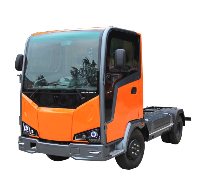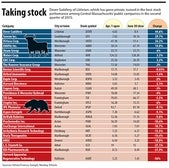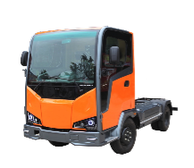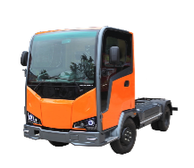Sevcon struggles with conflict mineral test
 courtesy
Sevcon manufactures parts for electric vehicles, such as this electric truck.
courtesy
Sevcon manufactures parts for electric vehicles, such as this electric truck.
Southborough-based Sevcon reported last week that their products contain minerals that could be funding human-rights abuses in Africa.
“After examining its product lines, Sevcon Inc. determined that all products it manufactured or contracted to manufacture during calendar year 2013 contained conflict minerals, and that these conflict materials were necessary to the functionality or production of those products,” Sevcon wrote in a U.S. Securities and Exchange Commission (SEC) filing.
Conflict minerals are frequently used to fund armed-militia groups in and around the Democratic Republic of the Congo, which are responsible for human-rights abuses, according to media reports.
Sevcon president and CEO Matt Boyle said in an interview that the definition of conflict minerals is synonymous with several of the materials used in its products such as tungsten, titanium, tin and gold. He said the company doesn’t seek to source these materials from conflict minerals areas, and that other public companies working with these materials have made similar disclosures.
“It’s somewhat impossible to tell, having been smelted, where the original materials came from,” Boyle said.
According to the filings, five of Sevcon’s product categories contain conflict minerals: motor vehicle controllers, on-board battery vehicle changers, Direct Current/DC vehicle convertors, industrial capacitors, and other drivetrain vehicle system components. The company makes microprocessor-based controls for electric and hybrid vehicles.
As a result of these findings, Sevcon conducted a reasonable country of origin inquiry (RCOI) to determine whether the conflict minerals contained in its products originated from war-torn African nations or from recycled or scrap sources. Sevcon was unable to prove that it doesn’t use conflict minerals from those African countries, the company reported.
Manufacturers and suppliers producing just 13 percent of Sevcon’s unique parts were able to verify the absence of conflict minerals in their production process. None of the remaining suppliers were able to verify the country of origin for the minerals, the company reported.
Sevcon said it would take action to mitigate the risk that its necessary use of conflict minerals will benefit armed groups.
Specifically, the company said it would work with manufacturers and suppliers to engage with the smelters and enroll in the conflict free smelters programs. Sevcon also said it will continue to monitor its progress toward conflict-free status and report trends publicly and within its supplier base.













0 Comments